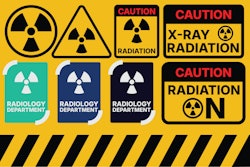A new ESR survey has found that radiology subspecialization recognition remains mixed across Europe, according to an article published on 15 August in Insights into Imaging.
In the report, lead author Dr. Miraude Adriaensen, PhD, a radiologist from the Zuyderland Medical Center in Heerlen in the Netherlands, and colleagues in Italy, Austria, and Slovenia elaborated on the survey results on behalf of the European Board of Radiology.
First, a substantial proportion of European nations -- 12 out of the 37 countries that responded to the survey -- still do not recognize radiology subspecialties, the authors noted. They include Austria, Belgium, Italy, Lithuania, Norway, and Ukraine, among others.
In addition, large variations exist between countries in the number of officially recognized subspecialties, with respondents reporting from zero to 12.
"Some countries are satisfied with their status quo of none or only very few recognised subspecialties in radiology, but the majority of countries would like an area of subspecialisation that is not officially recognised in their country to be recognised in the future," stated the group, adding that this aligns with similar sentiments expressed by ESR members in 2023.
The new study provides an additional comprehensive overview of radiology subspecialties in each European country, the authors pointed out. "Subspecialisation recognition constitutes an additional qualification at level III. Nonetheless, given the growing complexity of radiological examinations outside regular working hours, comprehensive general radiological expertise remains indispensable to sustaining the standards of continuous 24/7 service."
Comments in the survey also identified several disciplines that are not part of the 13 ESR-recognized subspecialties (nuclear medicine, gynecological and obstetric radiology, breast cancer screening programs, and lung cancer screening programs). This represents possible further fields of increasingly structured radiology subspecialties or certifications, the authors noted.
Information about the situation of all recognized subspecialties in radiology is still lacking for the 10 countries that did not respond, the authors wrote. Regardless, the paper "highlights the need for further harmonization and implementation of subspecialty training in radiology at a European level," they concluded.
Read the complete paper here.




















